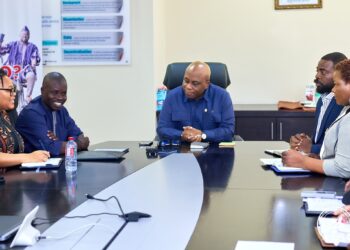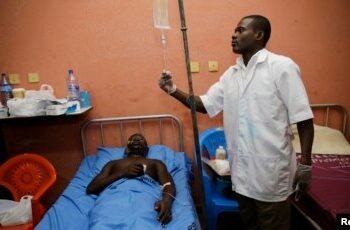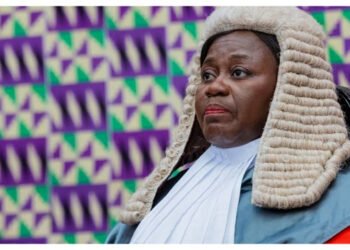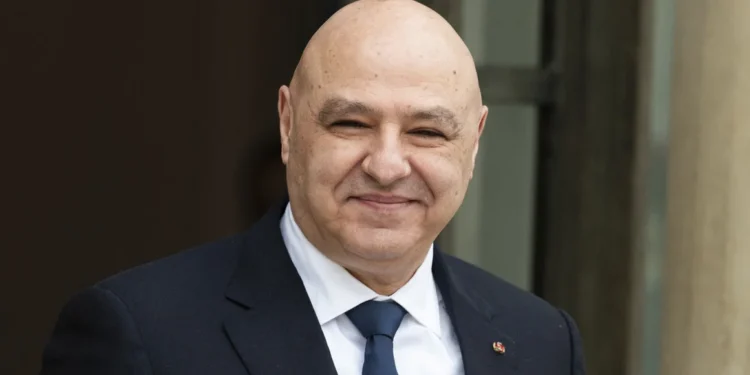A research fellow at the Ghana Centre for Democratic Development (CDD-Ghana) and a political analyst, Dr. John Osae-Kwapong, has expressed concerns about the ongoing issues surrounding the operations of Ghana’s Electoral Commission (EC) in ensuring a transparent election in the upcoming 2024 elections.
Dr. John Osae-Kwapong’s remarks, focusing on the need to restore trust in the EC, highlighted the perception that the electoral body plays a crucial role in the outcome of elections, regardless of which political party is in power.
“Our two main political parties have gotten to a point where they believe that their success or otherwise at the polls is also a reflection of what the Electoral Commission does or does not do.”
Dr. John Osae-Kwapong A research fellow at the Ghana Centre for Democratic Development (CDD-Ghana)
This sentiment has manifested in how political parties approach the EC, especially around election periods.
“It intensified in 2016. If you look at the lead-up to 2016, some of the things Madam Charlotte Osei [former EC chair] was taken through and had to deal with the cause of all these suspicions about her motives.”
Dr. John Osae-Kwapong A research fellow at the Ghana Centre for Democratic Development (CDD-Ghana)
According to Dr. Osae-Kwapong, this scenario has repeated itself in 2024, with the roles reversed—the NPP now aligning with the EC while the NDC expresses strong objections and concerns.
The NDC’s Concerns Over the Provisional Register
One of the core issues raised by the NDC, which Dr. Osae-Kwapong touched upon, is the provisional voter register. He explained that the NDC’s concerns about alleged vote bloating have become a major point of contention between the opposition party and the EC.
However, the NDC has spoken about bloating in many parts, over 200,000 votes, and they’ve mentioned that in some places, you are seeing add-ons of 3,000 or 5,000 vote and putting that together could turn the tide of an election, and they are saying they are not going to sit down and let that happen.
According to Dr. Osae-Kwapong, such allegations pose serious challenges to the credibility of the electoral process, and it is the EC’s responsibility to address them transparently.
Transparency and Accountability of the EC
A key point in Dr. Osae-Kwapong’s analysis is the need for the EC to be transparent about its processes.
Dr. Osae-Kwapong argued that such an audit would serve as a confidence-building measure, helping to dispel suspicions that could undermine the credibility of the December 2024 elections. In his view, any effort that increases transparency and fosters trust in the EC would be beneficial for the electoral process.
Dr. Osae-Kwapong highlighted this as a critical concern that the EC must address as it prepares for the upcoming elections.
“The EC is going into this election having one of the lowest trust ratings they’ve ever seen in the Afrobarometer survey, for me, I am always encouraging the EC that they have to keep in mind that anything they do in preparing us for the December should also drive by the fact that they want to restore some of that lost trust in the Institution.’’
Dr. John Osae-Kwapong A research fellow at the Ghana Centre for Democratic Development (CDD-Ghana)
Dr. Osae-Kwapong emphasized that while the EC does not need to accede to every demand made by political parties, how it manages these issues will play a pivotal role in matters of the institution.
‘…But it also means that how you handle these issues that are emerging will go a long way to either worsen the trust or rebuild that trust. For me, I just hope that the EC would continue to be guided by the fact that all they want to do is to assure us that we can have trust and confidence in the processes leading up to the December 7th elections.”
Dr. John Osae-Kwapong A research fellow at the Ghana Centre for Democratic Development (CDD-Ghana)
Dr. Osae-Kwapong urged the EC to prioritize rebuilding trust in the electoral system as part of its preparations for the December 7, 2024 elections. He emphasized that the EC’s actions should be geared toward reassuring Ghanaians that the upcoming elections will be free, fair, and credible.
The importance of transparency, accountability, and the EC’s efforts to rebuild trust cannot be overstated, especially in an election season where political tensions are high and public confidence is fragile. Dr. Osae-Kwapong’s analysis suggested the success of the upcoming elections may not only depend on the voters but also on how well the EC manages the perception of its impartiality and fairness.
READ ALSO; Legendary Actor James Earl Jones Dies at 93





















